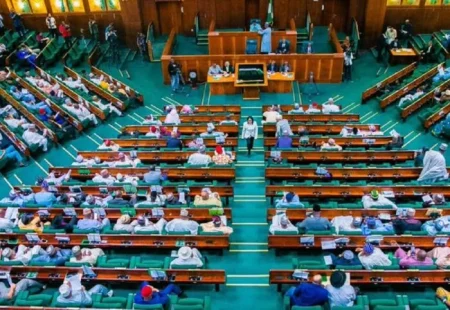The South-West Security Stakeholders Group has issued a dire warning about the escalating threat of banditry in the region, particularly following a recent attack in Babanla, Kwara State, that resulted in the deaths of security personnel and the displacement of thousands of residents. The group, comprising various security organizations including the Oodua People’s Congress, Agbekoya Society, Vigilante Group of Nigeria, and Professional Hunters, emphasizes the urgent need for government intervention and heightened security measures to prevent further violence and the spread of insecurity to other areas. Their intelligence suggests that armed groups remain active in forests and border towns across the South-West, posing a significant and ongoing threat. The group calls for enhanced intelligence gathering, stronger inter-agency collaboration, and a concerted effort to dislodge these criminal elements from their hideouts. They also express condolences to the victims’ families and urge residents to remain vigilant in the face of this growing danger.
The Babanla attack and the subsequent warning from the South-West Security Stakeholders Group highlight a broader concern about the interconnectedness of various social vices plaguing Nigeria, including cultism, drug abuse, and banditry. These interconnected challenges create a vicious cycle of violence and instability, demanding a comprehensive and multifaceted response. Cultism, once primarily confined to university campuses, has spread into secondary schools and communities, luring vulnerable youth into a world of violence and crime. The rampant abuse of drugs and illicit substances further exacerbates the problem, fueling criminal activities and undermining social cohesion. Banditry, often intertwined with these other vices, poses a significant threat to security and stability across various regions of the country.
The Chairman/Chief Executive of the National Drug Law Enforcement Agency (NDLEA), Brig. Gen. Mohamed Buba Marwa (retd.), has emphasized the urgent need to address these interconnected challenges collectively. He highlights the alarming projection that drug use in Africa could increase by 40%, underscoring the gravity of the situation. Marwa stresses the importance of shared responsibility in combating these issues, calling on parents, religious institutions, traditional rulers, educational authorities, and community leaders to unite against these destructive forces. He advocates for strengthening the family unit as the foundation of moral instruction and promoting schools as safe spaces that foster discipline, mentorship, and awareness. Furthermore, he emphasizes the need to invest in youth development by creating opportunities for education, entrepreneurship, skills acquisition, and sports, thereby providing alternatives to the allure of cults and drugs.
Marwa outlines the NDLEA’s intensified efforts in combating drug trafficking and abuse, citing significant seizures and arrests nationwide. Over the past 54 months, the agency has apprehended 67,345 traffickers, including 95 barons, with 12,415 currently serving jail terms. They have also seized over 11.2 million kilograms of illicit drugs and destroyed 1,572 hectares of cannabis farms, predominantly in the South-West. Despite these successes, Marwa acknowledges the need for community partnerships and urges residents to report suspicious activities and support the agency’s advocacy drives. This underscores the critical role of community involvement in addressing the complex web of interconnected social vices that threaten Nigeria’s security and stability.
The convergence of cultism, drug abuse, and banditry presents a formidable challenge to Nigeria. These interconnected issues feed off each other, creating a cycle of violence and instability that requires a comprehensive and multi-pronged response. The warning from the South-West Security Stakeholders Group emphasizes the urgent need for heightened security measures, improved intelligence gathering, and stronger collaboration among security agencies to combat the growing threat of banditry in the region. Concurrently, addressing the root causes of these interconnected problems, including poverty, unemployment, and lack of access to education and opportunities, is crucial for long-term solutions.
The call for collective responsibility underscores the importance of community engagement in tackling these challenges. By strengthening families, schools, and community institutions, and by providing youth with constructive alternatives, Nigeria can begin to break the cycle of violence and build a more secure and prosperous future. The NDLEA’s intensified efforts in combating drug trafficking are a vital component of this broader strategy, but the success of these efforts hinges on the active participation of communities in reporting suspicious activities and supporting the agency’s mission. Ultimately, a comprehensive approach that addresses both the symptoms and the underlying causes of these interconnected social vices is essential for achieving lasting peace and stability in Nigeria.














